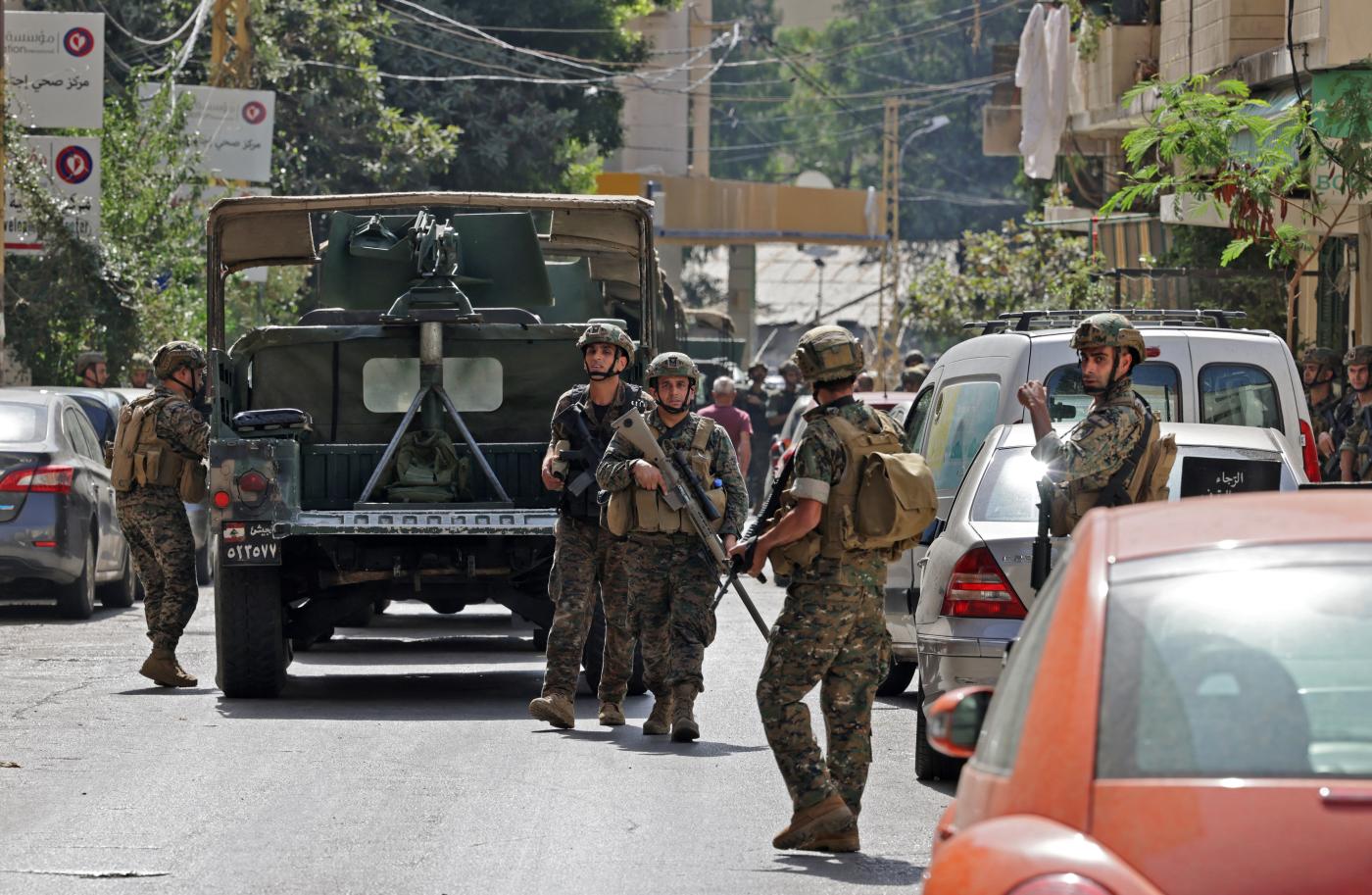
BY BASSEM MROUE AND QASSIM ABDUL-ZAHRA -- BEIRUT (AP) — A Lebanese Shiite cleric who has angered politicians and religious leaders in Lebanon and Iraq said Friday that groups including Lebanon’s militant Hezbollah are trying to silence voices of dissent within the sect — including his own. Sheikh Yasser Auda has developed a reputation on social media in recent years for his criticism of corruption in Iraq and Lebanon. He has also spoken out against the use of violence against opponents of Iran-backed groups in the two crisis-hit countries. He vowed in an interview with The Associated Press on Friday not to bow down even if it costs him is life. His comments came two days after a department within The Supreme Islamic Shiite Council of Lebanon, the country’s top Shiite religious authority, issued a statement naming 15 clerics whom it said are not qualified to provide religious guidance. Auda was at the top of the list and was almost stripped of his religious status. But the council later issued a statement saying that the position of the General Directorate for Religious Advocacy did not represent its point of view.
“I don’t recognize The Supreme Islamic Shiite Council of Lebanon,” Auda said in the sitting room of his modest apartment in Beirut’s predominantly Shiite southern suburb of Mreijeh. Auda said he rejects “corruption by politicians who are protected by religious authorities,” in an apparent reference to the council. He blamed the divisions within the council regarding the statement about his being unqualified to provide religious guidance to competition among clerics who hope to head the council one day.
By Rob Sacks, Editor at LinkedIn News — Nearly half of Americans believe artificial intelligence could replace their jobs, Bloomberg reports, citing …
By AP — WASHINGTON: The United States imposed sanctions Wednesday on a Lebanese environmental organization accused of being an arm of the …

By AGNES HELOU -- BEIRUT — The Lebanese navy expects to receive three Protector-class patrol boats in coming days as part of US military aid, but the country’s naval commander said Beirut will need twice that number — plus larger patrol boats — to better secure its maritime borders. “This number is not sufficient to meet the needs of the navy to protect the country’s natural resources and sovereign rights in its economic waters,” Lebanese navy commander Adm. Haissam Dannaoui told Breaking Defense. “Since these boats have limited capabilities to navigate in difficult weather conditions, the navy has a plan to acquire large-sized patrol boats that can navigate in difficult weather conditions, have greater firepower, and can transport more equipment and items.” He told Breaking Defense that larger vessels are also more effective in search and rescue operations and protection of oil platforms.
But before any additional ships, Lebanon expects to accept the first three Protector-class vessels on Aug. 21, a source told Breaking Defense. Earlier in 2023, Lebanese navy teams were trained for operating these vessels in the US. A spokesperson for the US Embassy in Beirut declined to comment on the timing of the ship delivery. Another US State Department told Breaking Defense, “The United States is providing maintenance and training to support the transfer of protector class patrol boats to the Lebanese Armed Forces (LAF). Crew training began earlier this year. The U.S. takes a total package approach to Foreign Military Sales to ensure customers are able to fully employ capabilities to meet their security requirements.” When asked about the possibility of increasing the number of vessels, the official said, “At this time we are focused on transferring and building up the LAF’s capacity to employ the protector class patrol boats.”
Khazen History


Historical Feature:
Churches and Monasteries of the Khazen family

St. Anthony of Padua Church in Ballouneh
Mar Abda Church in Bakaatit Kanaan
Saint Michael Church in Bkaatouta
Saint Therese Church in Qolayaat
Saint Simeon Stylites (مار سمعان العامودي) Church In Ajaltoun
Virgin Mary Church (سيدة المعونات) in Sheilé
Assumption of Mary Church in Ballouneh
1 - The sword of the Maronite Prince
2 - LES KHAZEN CONSULS DE FRANCE
3 - LES MARONITES & LES KHAZEN
4 - LES MAAN & LES KHAZEN
5 - ORIGINE DE LA FAMILLE
Population Movements to Keserwan - The Khazens and The Maans
ما جاء عن الثورة في المقاطعة الكسروانية
ثورة أهالي كسروان على المشايخ الخوازنة وأسبابها
Origins of the "Prince of Maronite" Title
Growing diversity: the Khazin sheiks and the clergy in the first decades of the 18th century
Historical Members:
Barbar Beik El Khazen [English]
Patriach Toubia Kaiss El Khazen(Biography & Life Part1 Part2) (Arabic)
Patriach Youssef Dargham El Khazen (Cont'd)
Cheikh Bishara Jafal El Khazen
Patriarch Youssef Raji El Khazen
The Martyrs Cheikh Philippe & Cheikh Farid El Khazen
Cheikh Nawfal El Khazen (Consul De France)
Cheikh Hossun El Khazen (Consul De France)
Cheikh Abou-Nawfal El Khazen (Consul De France)
Cheikh Francis Abee Nader & his son Yousef
Cheikh Abou-Kanso El Khazen (Consul De France)
Cheikh Abou Nader El Khazen
Cheikh Chafic El Khazen
Cheikh Keserwan El Khazen
Cheikh Serhal El Khazen [English]
Cheikh Rafiq El Khazen [English]
Cheikh Hanna El Khazen
Cheikha Arzi El Khazen
Marie El Khazen